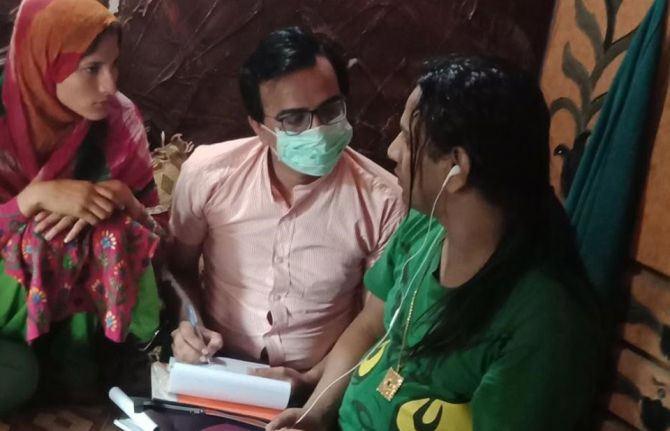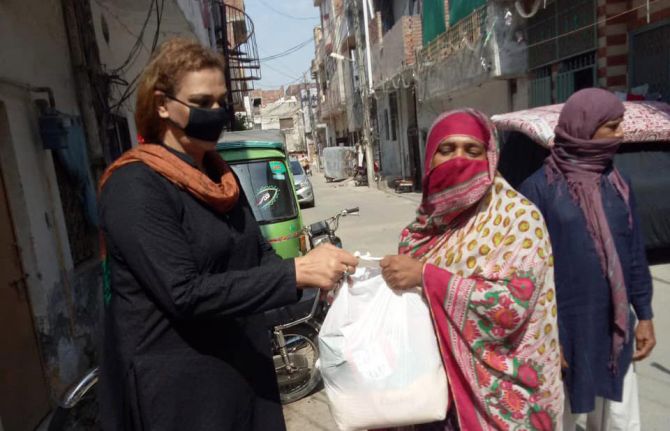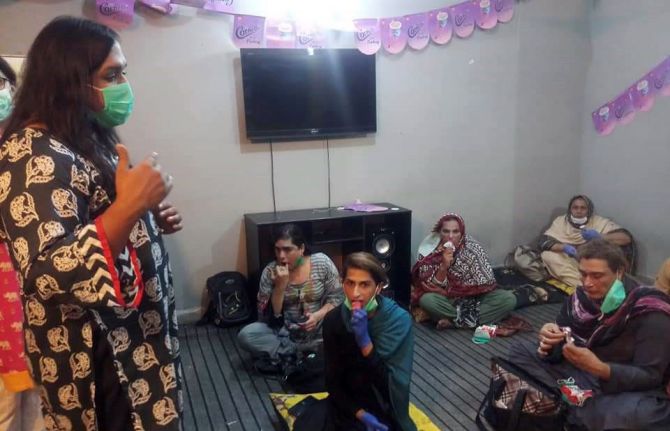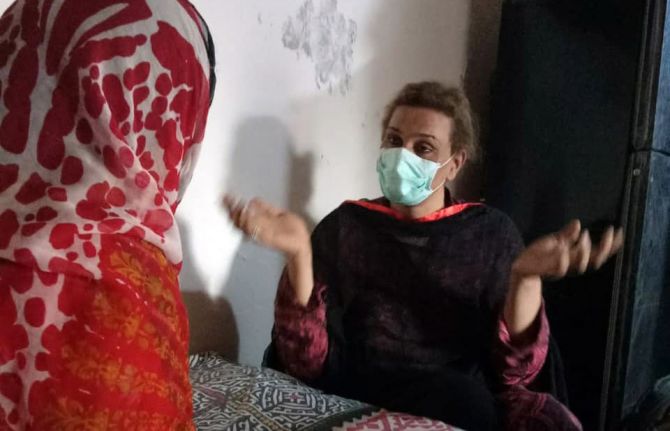




Feature Story
Keeping HIV treatment available in Pakistan during COVID-19
15 April 2020
15 April 2020 15 April 2020Sitting near her broken window, Ashee Malik (not her real name), a transgender woman who lives in Punjab Province, Pakistan, is counting her earnings, realizing that her income has fallen sharply. Her only source of money is dancing, begging and entertaining her clients, but since the lockdown imposed on 20 March to stop COVID-19, she hasn’t been able to leave her home. Her bright clothes are in her wardrobe, as is her makeup kit, laying unused for weeks. “We are concerned about our well-being, as we do not have enough resources to support ourselves and our families,” she said.
Ms Malik’s story is similar to that of most transgender people living in Pakistan, who face stigma, discrimination and social isolation. Access to health services, education and employment is one of the many challenges that transgender people face in the country, despite the passing of the Transgender Persons Protection of Rights Act 2018. And COVID-19 and the associated lockdown are making matters worse. As of 15 April, there were more than 5900 confirmed cases of COVID-19 in Pakistan and 107 deaths.
Owing to the restrictions on the movement of people, there is a real risk of a disruption to critical services for people living with HIV, which disproportionality affects transgender people in Pakistan.
The Khawaja Sira Society (KSS), which works with transgender people, has stepped in to provide support, working with the most marginalized and promoting knowledge about how to prevent HIV and COVID-19.
“The transgender community is even more vulnerable due to the prejudice and stigma and discrimination against them. We need to develop a COVID-19 prevention model by keeping in mind the dynamics and issues of the community in this pandemic,” said Mahnoor Aka Moon Ali, the Director of Programmes for KSS.
During discussions that KSS had with 150 transgender people, of whom approximately 30% are living with HIV, several issues were repeatedly raised, including the lack of income and the small size of Dheras, community homes for transgender people, in which four or five transgender people live together, making social distancing difficult. Since most of the transgender people contacted are illiterate, public health campaigns on how to prevent infection by the coronavirus are not getting through. Fear of the disease is high, which is impacting on mental health. The Government of Pakistan has announced that food aid will be made available, but transgender people face challenges in accessing the scheme, which is dependent on verification based on the national identification card, something that most transgender people in the country simply don’t have.
Social media is increasingly being used during the lockdown and together with UNAIDS Pakistan, KSS is disseminating information on hygiene, preventive measures and social distancing on social media and is engaging with the community on COVID-19. KSS, together with provincial government authorities, is also working to ensure that people living with HIV can get multimonth refills of antiretroviral therapy delivered to their home.
“We as transgender people living with HIV feel we are at risk by visiting government-run antiretroviral therapy centres. We need antiretroviral therapy to be delivered to us,” said Guddi Khan, a transgender woman who is living with HIV.
Since an uninterrupted supply of antiretroviral therapy is essential for people living with HIV, the Pakistan Common Management Unit for AIDS, TB and Malaria, in collaboration with UNAIDS and other partners, has established virtual platforms and helplines in order to ensure that coordination is continued. An emergency stock of antiretroviral therapy has been made available for people living with HIV for the next two months and a buffer stock is being made available through the Global Fund to Fight AIDS, Tuberculosis and Malaria in order to avoid interruptions in the event that imports of medicines are disrupted.
“We are working closely with the Association of People Living with HIV, federal and provincial governments and the UNAIDS family to monitor the situation and quickly help address barriers in accessing life-saving HIV services in these extremely challenging times of the COVID-19 crisis,” said Maria Elena Borromeo, the UNAIDS Country Director for Pakistan and Afghanistan.



